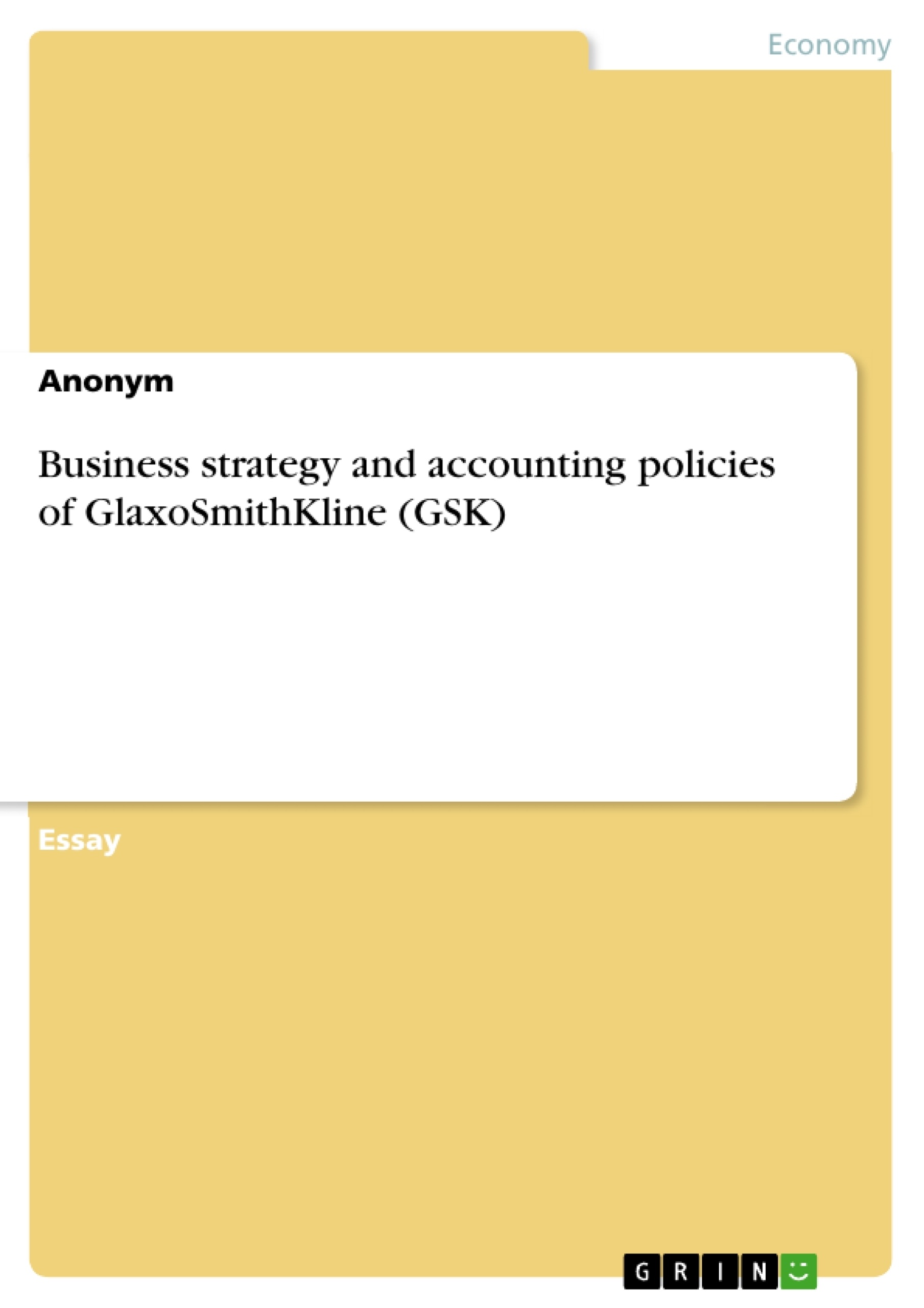In order to analyse and interpret the business strategy and the resulting accounting policy choices and disclosures, this paper examines the macroeconomic environment as well as the industrial and firm level of GlaxoSmithKline during the accounting period 2019. Therefore, property, plant and equipment (PPE), intangible assets, business combinations, impairments as well as inventories are considered in more detail. In conclusion, the accounting and disclosure methods are evaluated with regard to their requirements and completeness.
Inhaltsverzeichnis (Table of Contents)
- 1 Background
- 1.1 Major events occurred at macroeconomic level
- 1.2 Major events occurred at industry level
- 1.3 Major events occurred at firm level
- 1.4 Expectations
- 2 Analysis of GSK Accounting Policy Choice and Disclosure Compliance
- 2.1 Property, Plant and Equipment - IAS 16
- 2.2 Intangible Assets – IAS 38
- 2.3 Impairments – IAS 36
- 2.4 Inventories - IAS 2
- 2.5 Business Combinations – IFRS 3
- 3 Conclusion
Zielsetzung und Themenschwerpunkte (Objectives and Key Themes)
This essay examines GlaxoSmithKline’s (GSK) accounting policy choices and disclosure compliance in relation to its financial reporting for 2019. It aims to analyze the company’s accounting practices within the context of major events at the macroeconomic, industry, and firm levels. The analysis focuses on key accounting standards such as IAS 16 (Property, Plant and Equipment), IAS 38 (Intangible Assets), IAS 36 (Impairments), IAS 2 (Inventories), and IFRS 3 (Business Combinations).
- Impact of macroeconomic events on GSK’s accounting and disclosure practices
- Analysis of accounting policy choices related to property, plant and equipment, intangible assets, impairments, inventories, and business combinations
- Evaluation of GSK’s disclosure compliance with relevant International Accounting Standards (IAS) and International Financial Reporting Standards (IFRS)
- Assessment of GSK’s accounting and disclosure methods in relation to its requirements and completeness
- Examination of the broader industry trends and their influence on GSK’s accounting practices
Zusammenfassung der Kapitel (Chapter Summaries)
- Chapter 1: Background This chapter introduces GlaxoSmithKline (GSK) as a leading pharmaceutical company and provides a brief overview of its history and key business areas. It then examines the macroeconomic environment of 2019, highlighting significant events like Brexit, climate change, and the outbreak of the coronavirus. The chapter also discusses the impact of these events on GSK’s business and accounting practices, specifically addressing concerns about Brexit’s potential influence on product quality and supply chain continuity.
- Chapter 2: Analysis of GSK Accounting Policy Choice and Disclosure Compliance This chapter delves into the specific accounting policy choices and disclosure compliance of GSK in relation to various key accounting standards. It examines GSK’s treatment of property, plant and equipment (PPE) under IAS 16, intangible assets under IAS 38, impairments under IAS 36, inventories under IAS 2, and business combinations under IFRS 3. The chapter provides a detailed analysis of GSK’s accounting practices in these areas, evaluating their compliance with relevant standards and assessing their completeness.
Schlüsselwörter (Keywords)
The main keywords and focus topics of the essay include: GlaxoSmithKline, financial reporting, accounting policy choices, disclosure compliance, International Accounting Standards (IAS), International Financial Reporting Standards (IFRS), Property, Plant and Equipment (PPE), Intangible Assets, Impairments, Inventories, Business Combinations, Brexit, climate change, coronavirus, healthcare industry, mergers and acquisitions, accounting standards, reporting requirements.
Frequently Asked Questions
What is the focus of the GlaxoSmithKline (GSK) accounting analysis?
The analysis focuses on GSK's accounting policy choices and disclosure compliance for the 2019 period, specifically regarding standards like IAS 16, IAS 38, IAS 36, IAS 2, and IFRS 3.
How did Brexit affect GSK's financial reporting and operations?
The paper examines concerns about product quality and supply chain continuity caused by Brexit, and how these macroeconomic uncertainties influenced GSK's business strategy and disclosures.
Which specific accounting standards are evaluated in this paper?
The study evaluates compliance with IAS 16 (Property, Plant and Equipment), IAS 38 (Intangible Assets), IAS 36 (Impairments), IAS 2 (Inventories), and IFRS 3 (Business Combinations).
What macroeconomic events influenced GSK in 2019?
Major events included Brexit, climate change initiatives, and the initial outbreak of the coronavirus, all of which had implications for the global healthcare industry.
Does GSK comply with International Financial Reporting Standards (IFRS)?
The paper assesses GSK's disclosure methods and evaluates whether their accounting practices meet the requirements and completeness mandated by IFRS and IAS.
- Quote paper
- Anonym (Author), 2021, Business strategy and accounting policies of GlaxoSmithKline (GSK), Munich, GRIN Verlag, https://www.grin.com/document/1137472



